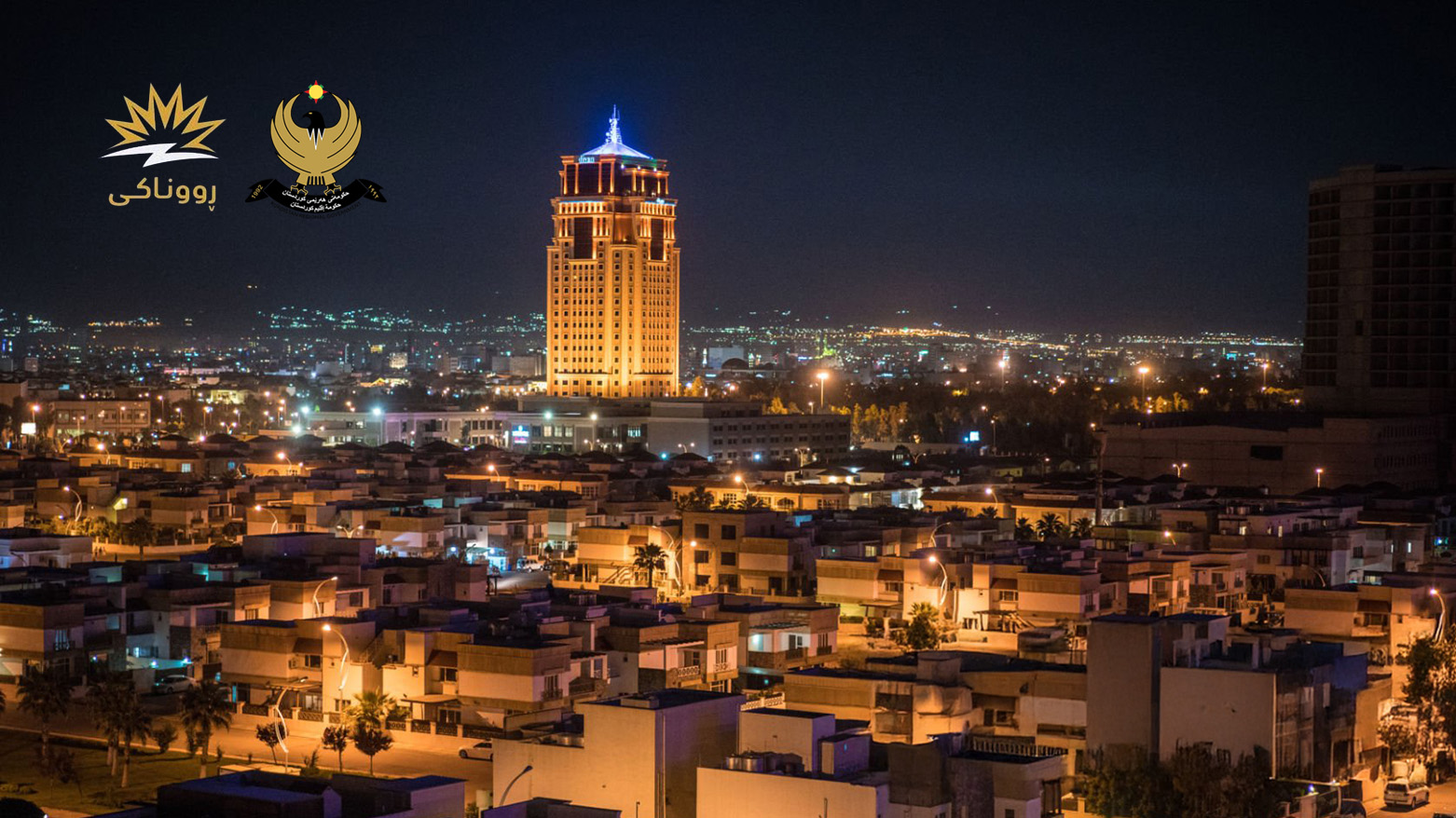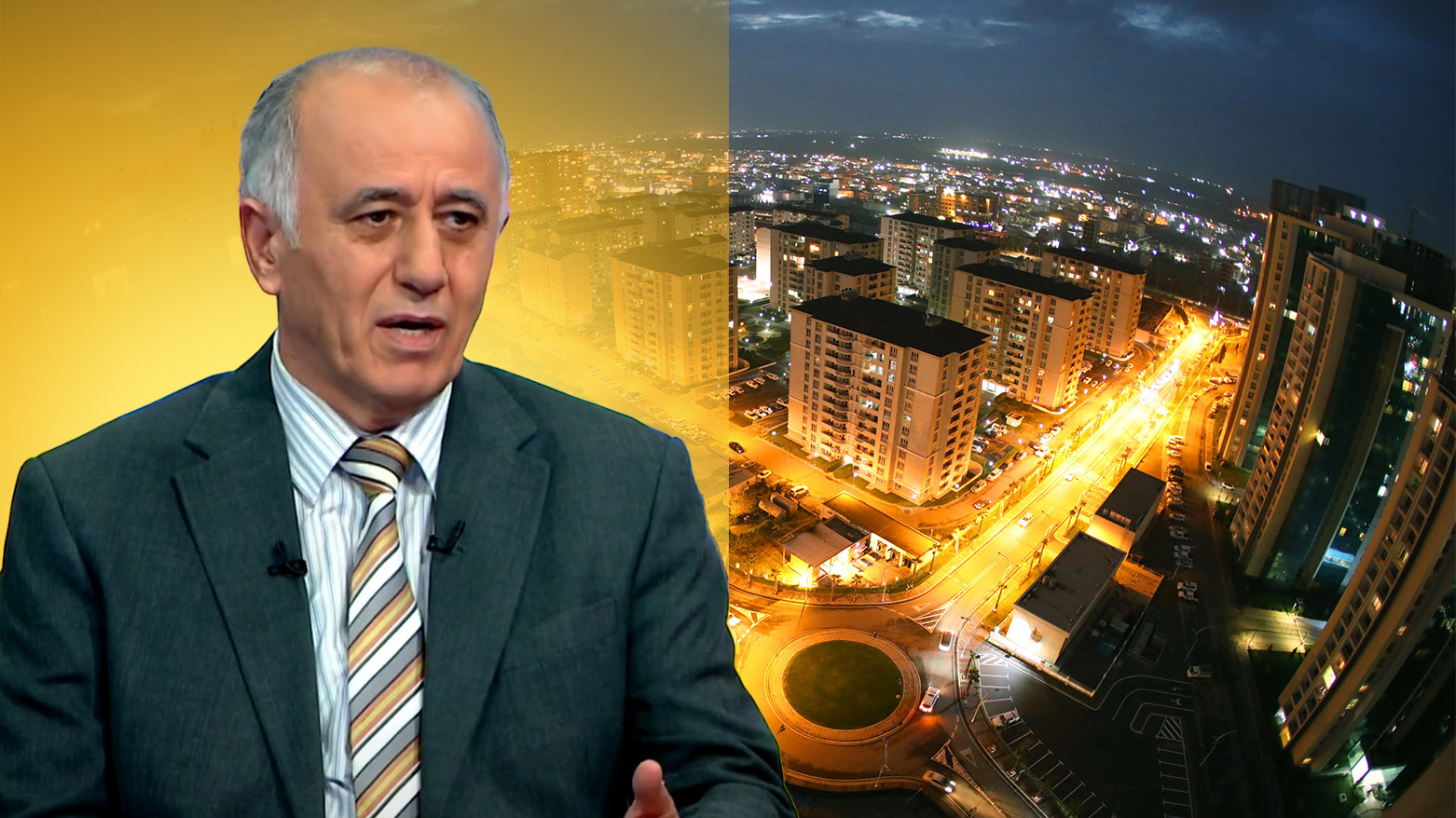‘KRG’s Runaki Project Ends 400 Diesel Generators in Erbil,’ KRG Official
By ensuring 24-hour electricity for homes and businesses, the Runaki Project has significantly cut reliance on diesel generators, reducing emissions and advancing Erbil’s shift to cleaner, sustainable energy.

ERBIL (Kurdistan24) – Aziz Ahmad, Deputy Chief of Staff to Prime Minister Masrour Barzani, has highlighted the significant environmental and economic benefits of the Kurdistan Regional Government’s (KRG) Runaki (Light) Project, which has led to the removal of nearly 400 diesel-powered private generators across Erbil. This major milestone, achieved through the KRG’s 24/7 electricity program, marks a crucial step in reducing pollution, improving air quality, and enhancing the city’s overall sustainability.
Ahmad announced on the social media platform X (formerly Twitter) that thanks to this initiative, neighborhoods throughout Erbil have phased out reliance on private generators, resulting in a substantial decrease in air and noise pollution. The project’s impact has been compared to removing over 60,000 vehicles from the road, a shift that is expected to significantly benefit public health and the environment.
Nearly 400 diesel-powered private generators in neighbourhoods across Erbil have now been shut down, thanks to the KRG’s 24/7 programme — the equivalent of removing over 60,000 vehicles from the road.
— Aziz Ahmad (@azizkahmad) March 8, 2025
Some 5,000 private generators operate across the Kurdistan Region, serving… pic.twitter.com/MJznFIa6Qo
The elimination of 400 private generators has been likened to removing over 60,000 vehicles from the road, according to Ahmad.
These generators, which were previously widely used to compensate for power shortages, emitted large quantities of carbon dioxide, nitrogen oxides, and particulate matter, contributing to Erbil’s air pollution levels and posing serious health risks to the population.
By providing 24-hour electricity to households and businesses, the Runaki Project has dramatically reduced dependence on diesel generators, curbing emissions and helping Erbil transition toward cleaner and more sustainable energy solutions.
For decades, the Kurdistan Region has struggled with energy supply shortages, prompting residents and businesses to rely on an estimated 5,000 private generators across neighborhoods and commercial areas. These generators, while providing a temporary solution, placed a significant financial burden on users due to rising fuel costs and maintenance expenses.
“Some 5,000 private generators operate across the Kurdistan Region, serving neighborhoods, large households, businesses, and the government. For many years, they have helped fill a gap that the KRG struggled to address—until now,” Ahmad stated.
With the Runaki Project’s expansion, approximately 90,000 homes and businesses in Erbil have already been connected to round-the-clock electricity, significantly reducing their reliance on privately owned power sources.
Beyond environmental advantages, the Runaki Project has also lowered household energy costs, as consumers no longer need to pay high fees for generator subscriptions. Businesses, particularly those in the retail, manufacturing, and hospitality sectors, now operate with greater efficiency and reliability, without concerns about frequent power outages or additional generator fuel costs.
Furthermore, the removal of private generators has helped reduce noise pollution, as diesel-powered units often ran continuously in residential and commercial areas, disturbing the daily lives of thousands of residents.
Runaki Project Nears Completion, Bringing 24/7 Power to Erbil
Ali Rashid, President of the Erbil Provincial Council, has confirmed that the Runaki Project is nearing completion in downtown Erbil, marking a transformative step in the city’s energy infrastructure.

Within the next month and a half, thousands of homes and businesses will gain access to uninterrupted power supply, eliminating the need for private diesel generators and significantly improving quality of life for residents.
Rashid told Kurdistan24 that the Runaki Project is progressing steadily, with 400 generators already shut down and 21 neighborhoods nearing full integration into the 24-hour national electricity network.
He emphasized that the project is designed to ensure reliable electricity, reduce reliance on diesel generators, and promote energy efficiency.
According to Rashid, the project initially launched in western Erbil and has now expanded toward the city center, northern, and eastern districts. He stressed the importance of responsible electricity usage, pointing out that some households leave water heaters running 24/7, which could be avoided to allow more efficient power distribution to other homes.
Before the Runaki Project, citizens faced significant limitations due to unreliable generator power. Many had to turn off appliances before using others to avoid overloading circuits. Now, Rashid assured, such issues will become a thing of the past, as homes and businesses will have access to consistent and stable electricity.
Beyond delivering constant electricity, Rashid emphasized the need for public awareness and responsible energy consumption. He encouraged residents to turn off unnecessary lights, appliances, and electronics when leaving home, which would not only lower electricity bills but also contribute to overall grid efficiency.
As the Runaki Project nears completion in Erbil, Rashid revealed that the Kurdistan Regional Government’s Ministry of Electricity has laid out plans to expand the initiative to Sulaimani and Duhok.
However, this rollout will be implemented in phases, ensuring a smooth and effective transition to uninterrupted power across the Kurdistan Region.
With the final stages of the Runaki Project set for completion in downtown Erbil in just over a month, the initiative marks a significant milestone in Kurdistan’s energy sector. The project not only brings modern electricity solutions to the region but also lays the foundation for a more sustainable and efficient energy future.
The KRG’s 24/7 electricity program is part of a broader energy reform strategy aimed at modernizing Kurdistan’s power infrastructure, increasing energy efficiency, and ensuring sustainable electricity generation for all citizens.
With Erbil making strides towards a more sustainable energy future, the focus now shifts to expanding the Runaki Project across other cities in the Kurdistan Region, including Sulaimani and Duhok. Officials have signaled that further investments will be made to enhance power distribution networks, making the dream of uninterrupted electricity a reality for all.
As the KRG continues implementing energy reforms, the success of the Runaki Project underscores the government’s commitment to sustainable development, demonstrating how infrastructure modernization can simultaneously benefit the economy, environment, and public health.
Updated at 2:34 PM on Sunday, March 9, 2025